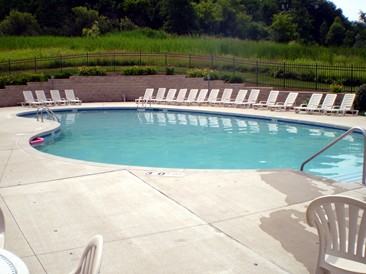
I think the sheer volume of REO sales that banks currently engage in must somehow offset the frustration of individual properties not selling. If you’re Bank of America and you’re selling a hundred thousand homes per quarter (I have no idea how many they sell, and I’m too lazy too look up the numbers- besides, this number doesn’t matter, it’s just a hyperbolic exercise), and the home at 123 Terrace street doesn’t sell, can you really be bothered by this? If there are tens of thousands of transactions in motion, fluidly moving towards resolution, and a property in Fontana doesn’t sell, does it matter?
It doesn’t matter to the institution, no. Not to Fannie or Freddi or Bank of America or the Bank of New York, it doesn’t matter. But to a market, to our market, REO properties that sit without selling matter quite a bit. They mean everything, really. To watch a private seller squirm under suffocating weight of a still slow market doesn’t tell us much. After all, the seller might not be motivated to match the market price, and in turn a languishing property held by a private citizen cannot be a true gauge of any market. However, to watch a bank owned property follow the market down and over and around until it finally sells, now that tells us something.
Private sellers might be selling because they feel like it, or because their son told them to, or because they want to buy a new car and travel to Las Vegas. People sell for all sorts of reasons; some noble, others not so much. As a result, private sellers do not always behave as a party looking to liquidate a property. Banks, on the other hand, are all about the liquidation of an asset. So if we take a Fontana condo that has been listed as REO since January, we can learn a lot about that market by the actions of the seller (the bank) and the reaction of the market (nothing).
There are currently two REO condo listings at Abbey Ridge, and a third unit offered via short sale. For now, let’s just look at the single REO begrudgingly owned by JP Morgan Chase. On a bright day in 2006 the previous owners paid another previous owner $380k for the unit. That was fun. Fontana still thinks the unit is worth $415k, give or take, but that’s just because they’re assessing taxes on it and not actually buying it. JP Morgan listed that same unit in January of this year for $324,720. Pretty low, right? Not really. The unit has undergone scheduled price reductions over the past four months and is currently at its most temporary resting spot in its downward spiral- $269k.
That isn’t really a big deal until you consider the unit still isn’t sold. The unit has been reduced some and then reduced some more, and it’s now at $269k and still failing to attract the attention of the market, or at least one buyer. This scenario is what an REO property can tell us about a market. It can show us where the floor is better than any private seller, unless that private seller is on a mission to liquidate. To see this unit drop $55k isn’t too surprising, but what happens if it drops to $199k. Then what? Compare this silent fall to the recent REO listing at Bay Shore. That unit hit the market and as soon as the First Look statute was up there were multiple offers on the unit (my buyer was the winning bidder). That is a sign of a market with activity, but Abbey Ridge? Crickets.
Abbey Ridge is in some serious trouble. There is another three bedroom REO hanging out there, surely facing a systematic reduction of its own. And then there’s the short sale, per chance hoping to snag a buyer before following a similar fate. Over the past two years, I have counseled many sellers to sell proactively. To sell defensively. To get out in front of any foreclosure trouble- the same trouble that I could see coming from a mile away (through Lis Pendens searches). Did they listen? Not really. Should they have? Um, yes?
There are now seven available units at Abbey Ridge. Had this been 2005 Abbey Ridge wouldn’t have had but one, maybe two. And if there were two they would have sold to two happy buyers. Today the market has changed. Abbey Ridge is no longer the crown jewel of the Fontana vacation home market, instead it is suffering the sort of fate that has been levied on markets that overheated everywhere. While the condo market in Walworth County was a hot market during the 2000s, Abbey Ridge made the rest of the market look downright anemic. This was a market propelled by supply and demand, but it did get a bit out of control. Now the market has fallen faster and farther than the market surrounding it, and where the bottom is no one knows. A quick hint, if you’re looking to define the bottom, just watch those two REO sales. Wherever they sell is likely the bottom, which means we haven’t found it just yet.
